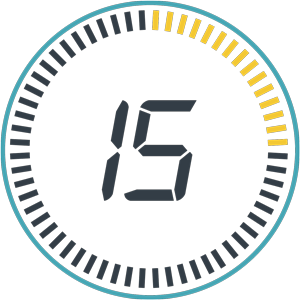STENDRA can cause your blood pressure to drop suddenly to an unsafe level if it is taken with certain other medicines. A sudden drop in blood pressure can cause you to feel dizzy, faint, or have a heart attack or stroke.
Do not take STENDRA if you:
- take medicines called nitrates, which are used to treat chest pain (angina)
- use street drugs called “poppers,” such as amyl nitrate and butyl nitrate
- take medicines called guanylate cyclase stimulators, which include Adempas® (riociguat), a medicine that treats pulmonary arterial hypertension and chronic thromboembolic pulmonary hypertension
- are allergic to avanafil or any of the ingredients in STENDRA
Stop sexual activity and get medical help right away if you have symptoms such as chest pain, dizziness, or nausea during sex. Sexual activity can put an extra strain on your heart, especially if your heart is already weak from a heart attack or heart disease. Discuss your health with your healthcare provider to ensure you are healthy enough for sex.
STENDRA can cause serious side effects.
Uncommonly reported side effects include:
- An erection that will not go away (priapism). If you have an erection that lasts more than 4 hours, get medical help right away.
- Sudden vision loss in one or both eyes. Sudden vision loss in one or both eyes can be a sign of a serious eye problem called non-arteritic anterior ischemic optic neuropathy (NAION). It is uncertain whether PDE5 inhibitors directly cause vision loss. Stop taking STENDRA and call your healthcare provider right away if you have sudden vision loss in one or both eyes.
- Sudden hearing decrease or hearing loss. Some people may also have ringing in their ears (tinnitus) or dizziness.
Before you take STENDRA, tell your healthcare provider if you:
- have or have had heart problems such as a heart attack, irregular heartbeat, angina, or heart failure; have had heart surgery within the last 6 months; have had a stroke; have low blood pressure, or high blood pressure that is not controlled; have a deformed penis shape
- have had an erection that lasted for more than 4 hours; have problems with your blood cells, such as sickle cell anemia, multiple myeloma, or leukemia; have retinitis pigmentosa, a rare genetic (runs in families) eye disease; have ever had severe vision loss, including an eye problem called non-arteritic anterior ischemic optic neuropathy (NAION); have bleeding problems; have or have had stomach ulcers; have liver problems; have kidney problems or are having kidney dialysis; or have any other medical conditions
Tell your healthcare provider about all of the medicines you take, including prescription and nonprescription medicines, vitamins, and herbal supplements. STENDRA may affect the way other medicines work, and other medicines may affect the way STENDRA works, which may cause side effects. Especially tell your healthcare provider if you take any of the following:
- medicines called nitrates
- medicines called guanylate cyclase stimulators, such as riociguat
- medicines called HIV protease inhibitors, such as ritonavir (Norvir®), indinavir (Crixivan®), saquinavir (Fortavase® or Invirase®), or atazanavir (Reyataz®)
- some types of oral antifungal medicines, such as ketoconazole (Nizoral®) and itraconazole (Sporanox®)
- some types of antibiotics, such as clarithromycin (Biaxin®), telithromycin (Ketek®), or erythromycin
- medicines called alpha-blockers. These include terazosin (Hytrin®), tamsulosin HCl (Flomax®), doxazosin (Cardura®), prazosin HCl (Minipress®), alfuzosin HCl (UroXatral®), dutasteride and tamsulosin HCl (Jalyn®), or silodosin (Rapaflo®). Alpha-blockers are sometimes prescribed for prostate problems or high blood pressure. In some patients, the use of STENDRA with alpha-blockers can lead to a drop in blood pressure or fainting
- other medicines that treat high blood pressure
- other medicines or treatments for ED
Do not drink too much alcohol (for example, more than 3 glasses of wine or 3 shots of whiskey) when taking STENDRA, as this can lead to increased chances of headache, dizziness, increased heart rate, or lowered blood pressure.
STENDRA does not protect against sexually transmitted diseases, including HIV.
The most common side effects of STENDRA are headache, flushing, stuffy or runny nose, sore throat, and back pain.
Tell your healthcare provider if you have any side effect that bothers you or does not go away. These are not all of the possible side effects of STENDRA. For more information, ask your healthcare provider or pharmacist. Call your healthcare provider for medical advice about side effects.
STENDRA is a prescription medicine used to treat erectile dysfunction (ED). STENDRA is not for use in women or children. It is not known if STENDRA is safe and effective in women or children under 18 years of age.
For more information about STENDRA, call 844-458-4887. If you would like to report an adverse event or product complaint, please contact us at 844-458-4887.
You are encouraged to report negative side effects of prescription drugs to the FDA by calling 1-800-FDA-1088, or at www.fda.gov/medwatch.
Please see full Prescribing Information and Patient Information.






